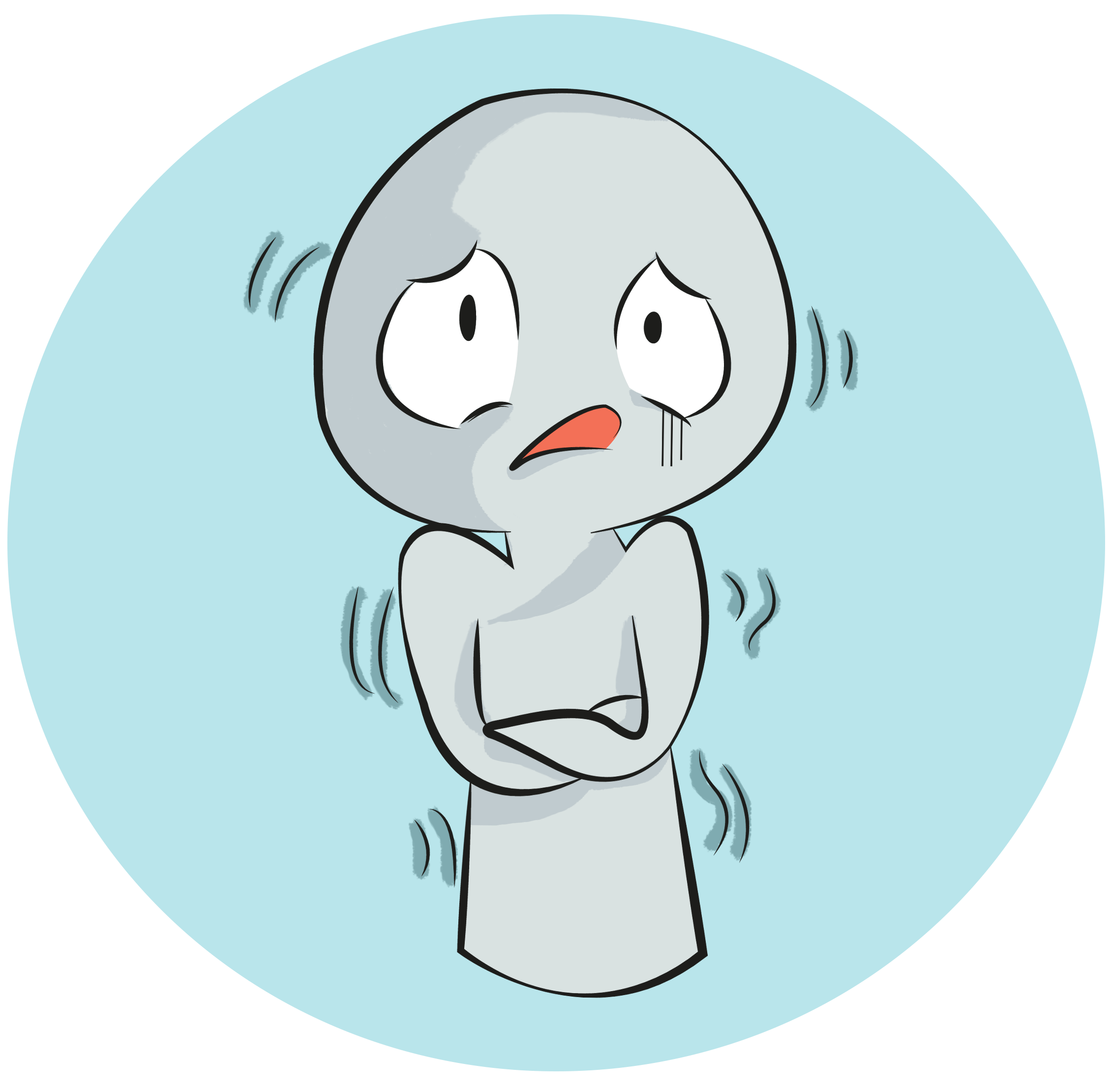ধাপে ধাপে নিচে দেখুন
আমরা আপনাকে সাপোর্ট করতে এখানে এসেছি।

What is anxiety
disorder?
Anxiety, stress, and fear are some of the common emotions that are dealt by most of us in our everyday life. Anxiety disorders involve more than our daily worries and fears. People dealing with anxiety disorders undergo immense stress and pressure and it worsens by time. Most commonly, they include issues such as the fear of heights, getting into buses or trains, crowds, meeting new people, talking to strangers, or even generalised issues such as family problems, financial issues, relationships etc. There are different types of anxiety disorders such as:
▪ Panic Disorder
▪ Generalised Anxiety Disorder (GAD)
▪ Social Anxiety Disorder (Social Phobia)
▪ Agoraphobia
▪ Obsessive Compulsive Disorder (OCD)
▪ Post Traumatic Stress Disorder (PTSD)
People dealing with anxiety disorders find it difficult to sleep, concentrate, relax, and also suffer from physical conditions such as heart palpitations, nausea, dizziness, headaches, indigestion, bowel disturbance, and lack of sexual pleasure, to name a few. These problems start affecting the behaviour, thoughts, and emotions of the individual, making it very difficult for them to lead a normal life. In some people, anxiety may arise suddenly or spontaneously without a specific symptom.
Why do people with anxiety turn to alcohol/drugs and why is the combination so dangerous?
People dealing with panic / anxiety disorders often tend to divert themselves to alcohol and other harmful drugs to calm themselves down and escape from fear. The initial calming effects of alcohol or substance abuse will eventually lead the individual to addiction. Both alcohol and substance abuse trigger panic attacks, and hence worsen the situation.
Most people dealing with anxiety disorders and addiction believe that alcohol and drug addiction is a cure for their symptoms. But when a person tries to ease their anxiety levels by constantly turning to alcohol or drugs, he/she is developing a high level of tolerance for these substances.
They will develop chronic dependence. The feeling of being close to friends, family, and feelings of confidence are only short lived. A person will more often than not return to their feelings of isolation and fear when alone, furthering intoxication and addiction.
Are there effective ways to treat Anxiety and Addiction?
Treating anxiety and addiction involves what we call, Dual Diagnosis treatment. This means that we need to treat both the addiction and anxiety as a single issue. Should the addiction be addressed without recognising the anxiety, relapse can often occur after treatment because unaddressed anxiety will sabotage recovery efforts. At the same time, should the anxiety be addressed without addressing the addiction first, the denial of active addiction will block necessary emotions needed to heal from anxiety.
How do we go about treating Dual Diagnosis? We treat these two illnesses in stages. Usually, it is not until a duration of abstinence has been attained that healing can begin with anxiety disorder. This is because the anxiety issues have been covered by the addiction all these years. It is important that the addiction gets addressed prior to uncovering and treating the core beliefs that have been at work in keeping the anxiety disorder active.
Only when both disorders have been equally addressed, can our clients find enough peace to live the life they want. At Solace Asia, we aid in this process through talk therapies, activities, mindfulness practices, as well as meditation. Rest assured, you or your loved one will be taken care of with love, compassion, and the professionalism required to treat Dual Diagnosis.





